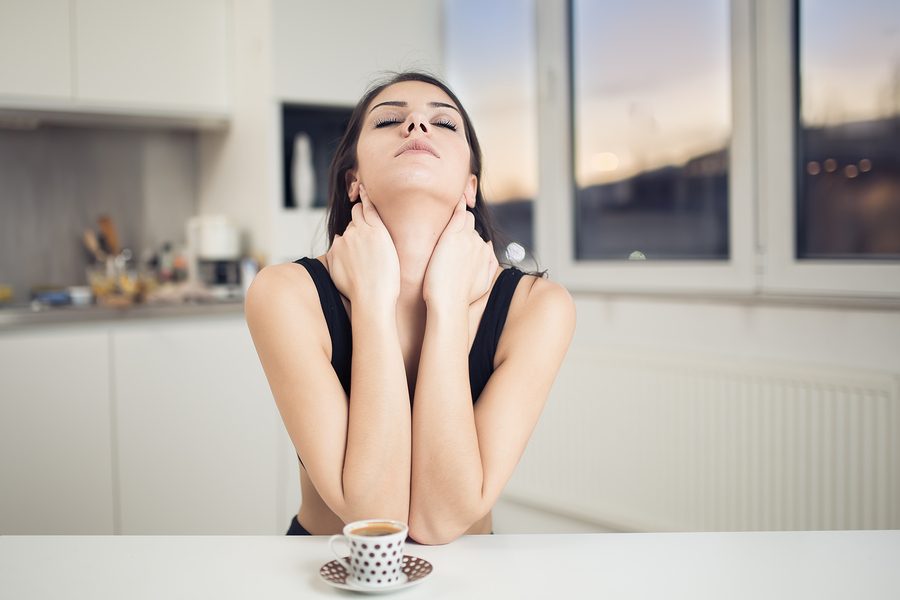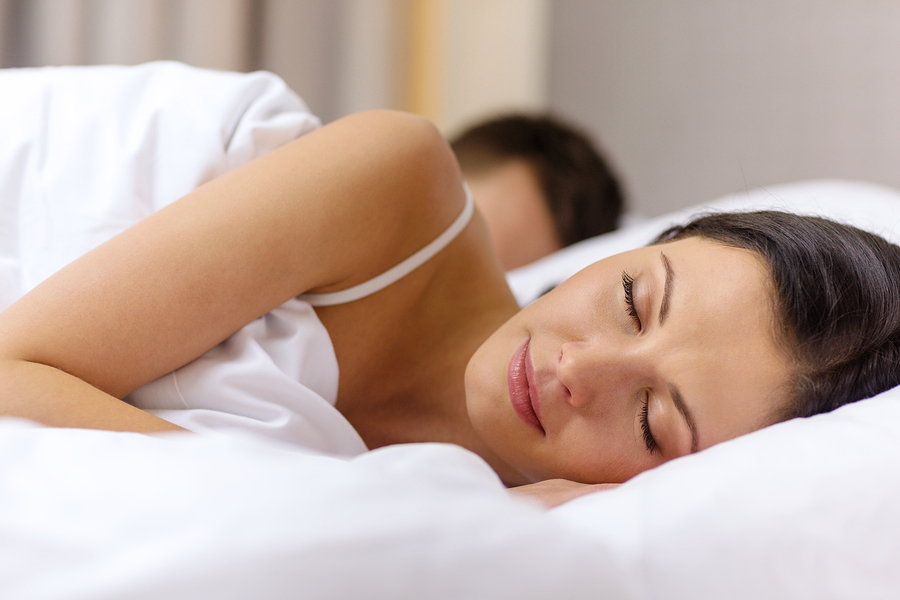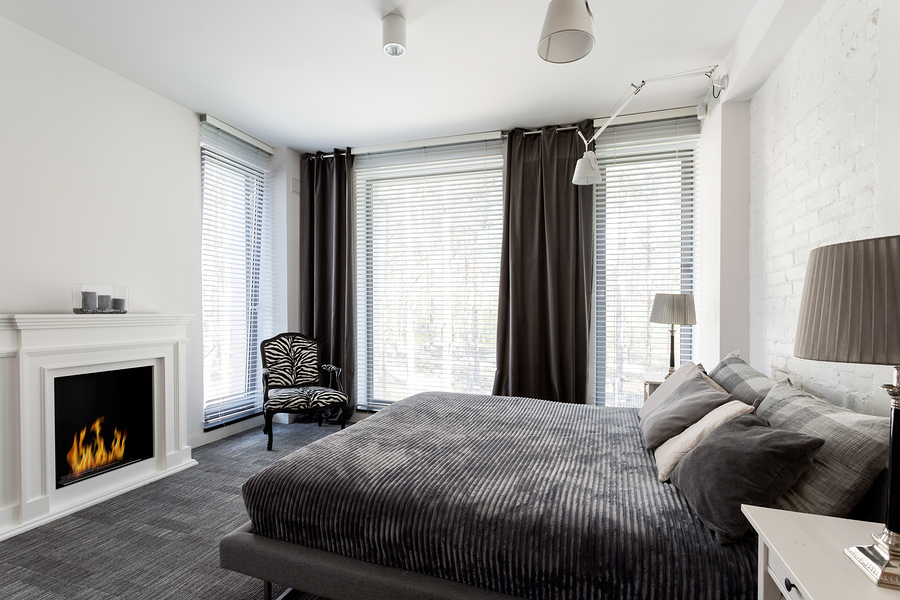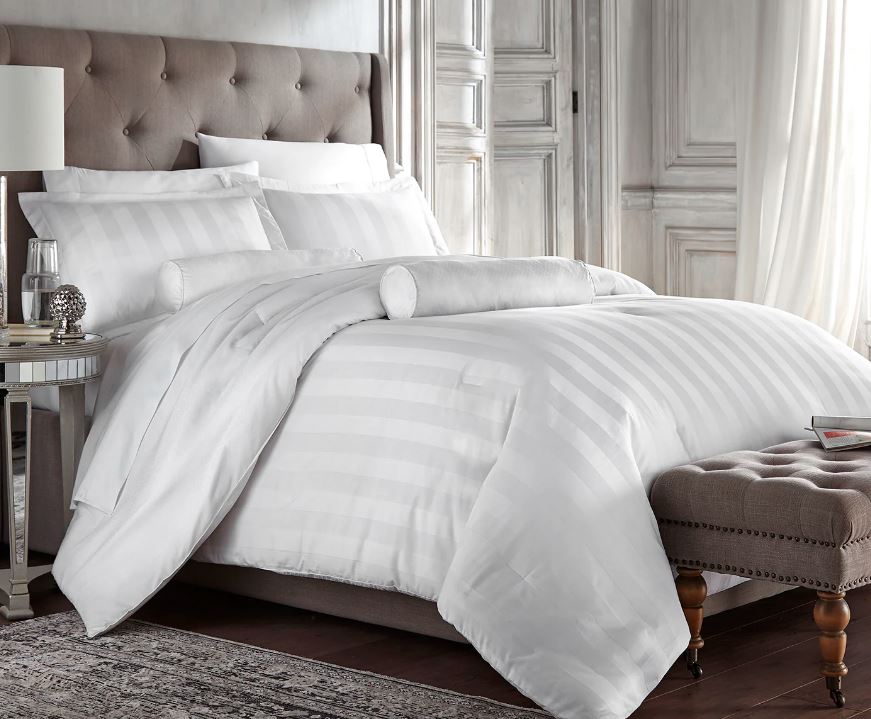
Trouble Sleeping? Pay Attention to The Small Things and Sleep Better Tonight

If you wake up each morning disappointed at how tired you still feel, now is the time to end the cycle. With the new year in full swing, many people resolve to live a healthier and more productive lifestyle. Exercising and eating right factor into the equation, but getting enough restful sleep is just as vital to your overall health. Better sleep leads to a variety of other benefits like deeper focus, a happier outlook, and even weight loss.
Capturing these benefits during the winter is achievable with just a few adjustments to your sleep routine. Before you reach for your blanket, here are 9 tips that will help you get better sleep:
1. Embrace the Light
The phrase “let there be light” plays a key role in regulating sleep patterns. Your body’s natural time clock determines when you should be awake and when you should rest. Bright light (either natural or artificial) sends the appropriate signals to your brain and helps you maintain proper balance even when winter’s shorter days are present. During the day, get outdoors, open window shades and let the daylight in. When evening comes, as much as possible, let the light dim naturally. Don’t use digital devices at bedtime whose lit screens artificially send “daytime” light message to your brain and keep your sleep hormone, melatonin, from flowing.
2. Establish the Right Temperature
Winter’s cooler air causes many people to crank the thermostat. However, this approach can actually decrease your chances of resting properly. Sleep Specialist and Author, Dr. Christopher Winter, considers 60 to 67 degrees Fahrenheit the appropriate temperature. Since bodies tend to cool during sleep, this recommended temperature range helps expedite the process and foster deeper sleep.
3. Welcome the Humidity
If you wake up in the middle of the night or in the morning with a dry throat, you may be a victim of dry air. A humidifier will add moisture back into the air and will help ease nasal congestion. Less nasal drainage means reduced snoring, coughing, and sore throats. Plus, humidity can actually make you feel warmer.
4. Try Decaf in the Afternoons
Do you use caffeine to boost your energy after a poor night of sleep? Caffeine can certainly eliminate grogginess, but it can also keep you awake when you should be asleep. One study noted that patients’ sleep patterns were significantly disrupted when they consumed caffeine 6 hours before bed. In order to avoid this result, switch to decaf after 4 p.m. This step allows your body to wind down properly.
5. Get an Air Purifier
Dust and pet dander can accumulate quickly during the winter. If you are sensitive to these allergens, you may notice that you awake abruptly to sneeze or cough. Air purifiers will help minimize the discomfort, and you will sleep much better. Plus, many air purifiers also remove bacteria particles from the air. This means that you will decrease your chances of catching the flu or a cold.
6. Limit Alcohol Consumption
You may have heard that alcoholic drinks (like wine) encourage better sleep. However, alcohol can actually prevent deep sleep from occurring because it blocks nasal passages and interrupts hormone production. One study even attributed heightened sleep apnea and severe snoring to alcohol.
7. Avoid Long Naps
Cold, dark days, a warm fireplace and a cozy corner of the sofa can make long naps a luxurious winter pastime. Naps can help you re-energize your focus when you moderate them. Excessive napping, on the other hand, can disrupt your natural time clock and keep you awake way past your bedtime. If naps are one of your favorite hobbies, limit your rejuvenating snooze to 30 minutes.
8. Avoid Big Meals Before Bed
Your body produces the hormone melatonin to help you sleep properly. Rich foods and large snacks can actually minimize melatonin production. Over-snacking can also contribute to disruptive irregularities like insomnia and nightmares. Some people find very spicy foods before bed disrupt their sleep. If you want more restful sleep, avoid eating comfort foods packed with carbohydrates before bed.
9. Find the Right Pillow
Pillows provide much more than comfort – they keep your head and neck properly positioned while you sleep, helping to encourage longer restful sleep as you remain pain and strain free. Ill-fitting pillows can cause painful annoyances like neck strain, headaches, numbness, or upper body aches and pains. Selecting the right pillow for your sleep style fosters better sleep and better health. Pay attention to what sleep position is most comfortable for you (back, side, stomach), then select a high quality pillow that is made to provide support in that position. The right pillow, warm blankets and quality bedding help you to relax before sleep and stay asleep longer, so take the time to make your bed just right, to let you get a good night’s sleep.
Your Better Sleep Journey Begins Today

Take time to think about your bedtime, do a little planning ahead, moderately adjust your diet and lifestyle for better sleep, and your body will reward you with better health and happiness.




